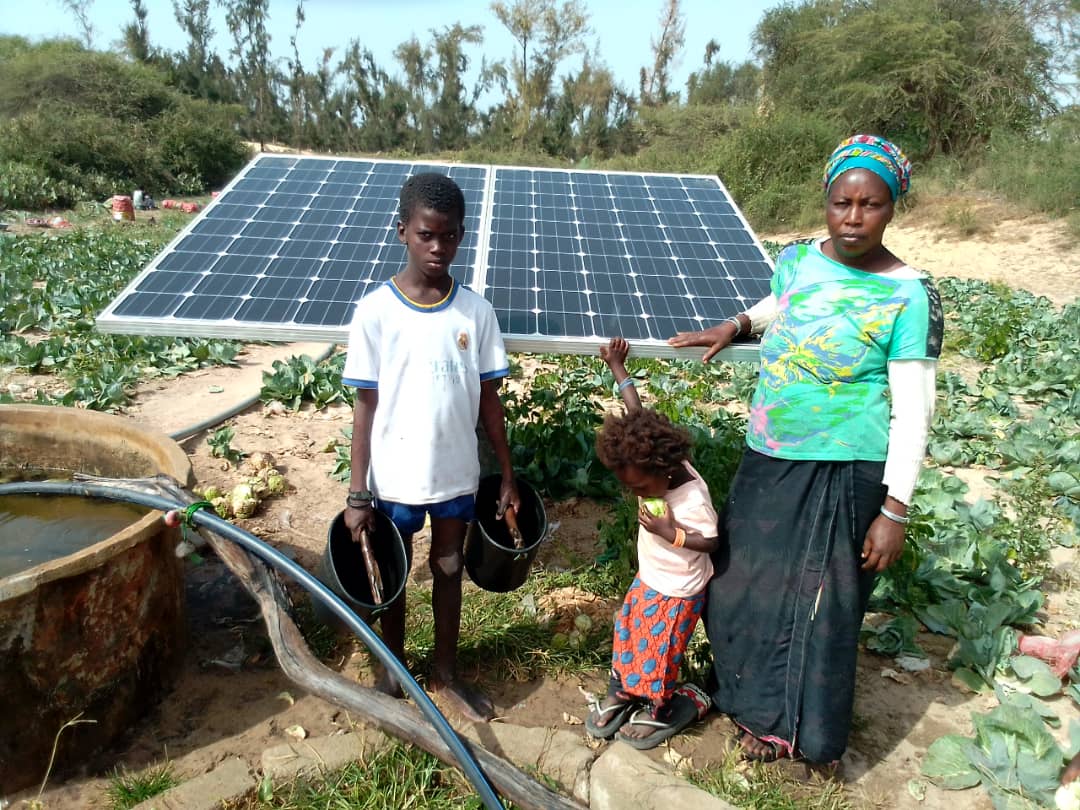When the unexpected departure of labourers during a critical stage of her vegetable crop production jeopardised her livelihood, Aïssata Ba decided she needed to reduce her dependence on seasonal agricultural workers. She knew that the most effective way of achieving greater self-reliance would be to mechanise the irrigation of her farmland by investing in a sprinkler system.
After researching the most suitable options in consultation with Papa Magatte Ly, Technical Coordinator at Energy 4 Impact, they calculated she would need to raise 850,000 francs for a sprinkler system able to cover her 0.11-hectare field.
Whilst Aïssata does not currently have this amount of money at her disposal, she is confident of her income-generating capacity over the longer term. Having paid off her solar pump and so significantly reduced her energy costs, she can now make a higher profit margin from the sale of her harvest. She can also count on the income derived from selling dried fish, her secondary economic activity.
So together with Papa Magatte Ly, she devised a savings plan which would allow her to build up savings of around 450,000 francs over the course of two cropping seasons, which would take six to eight months. This amount would suffice as a down payment for the installation of the sprinkler irrigation system. The remaining 400,000 francs would be paid off after the sale of produce from an additional two seasons. The pair has already identified a supplier of automated irrigation systems prepared to offer such terms.
“This plan will eventually allow me to irrigate without the support of hired labourers”, says Aïssata Ba. “I’ve always been anxious about whether I can rely on workers to keep my crops alive, so this step will greatly increase my autonomy. Then I will only need to hire seasonal labourers around harvest time which will enable me to save a lot of money on labour costs.”
Aïssata subsequently put herself to work on a new onion campaign, but the yield was not as plentiful as hoped, generating around 425kg which she sold for 106,250 francs. So, she quickly pivoted to growing cabbage, producing 30 bags which she sold for 225,000 francs. From the total turnover of 331,250 francs, she had to deduct the wages of her labourer. After taking care of her family’s needs, she could only put 110,000 francs into the sprinkler fund. To make matters worse, her dried fish trade didn’t generate the expected profit either as Aïssata had to contend with a rise in price for both fish stocks and fuel.
Having identified sprinkler irrigation as the solution for her business, Aissata is frustrated that the purchase of the system will now need to be deferred until she can muster enough money for the down payment. “I’m disappointed with the income I’ve managed to generate this season, but I’m still determined to stick to the plan even if it takes a little longer”.
This story has been developed by our partner Energy 4 Impact as part of our Women’s Economic Empowerment Program.







